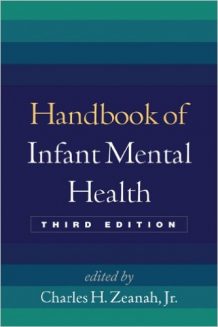Sleep is a very important process to the body. Without good quality sleep then you cannot deliver in any area of your life. If you are having trouble hitting the sack then you should do something about it.
Use your bed to (only) sleep.
To get the best rest while between the sheets, our bodies need to be conditioned to associate sleep with our bed. This is easiest to accomplish by eliminating all other activities in bed aside from sleep, such as watching television or reading books.ju
Of course, there is at least one other activity many of us perform in bed, one that serves as tremendous stress relief, but when not engaged in whoopee, stick to a routine of sleep only.
Invest in a great mattress.
Consider that human beings spend one-quarter to one-third of their entire life sleeping, so it just makes sense to invest in the one apparatus that will make this time as comfortable as possible. Test mattresses for firmness and size, or consider any one of the new startups, such as Casper, that will deliver a new mattress to your home and give you 100 days to test it. While this may be an unconventional business model, you can take advantage of it to find a mattress that fits you best.
Sourced from:https://www.entrepreneur.com/article/276755
 What you eat in the evening might as well be a contributing factor to poor sleep. You need to eat good food that gives your body an easy time when it is time to relax. Caffeine and nicotine do you no good. You should also ensure that your bedroom is an environment that is sleep friendly.
What you eat in the evening might as well be a contributing factor to poor sleep. You need to eat good food that gives your body an easy time when it is time to relax. Caffeine and nicotine do you no good. You should also ensure that your bedroom is an environment that is sleep friendly.
Avoid Caffeine, Alcohol, Nicotine, and Other Chemicals that Interfere with Sleep
As any coffee lover knows, caffeine is a stimulant that can keep you awake. So avoid caffeine (found in coffee, tea, chocolate, cola, and some pain relievers) for four to six hours before bedtime. Similarly, smokers should refrain from using tobacco products too close to bedtime.
Turn Your Bedroom into a Sleep-Inducing Environment
A quiet, dark, and cool environment can help promote sound slumber. Why do you think bats congregate in caves for their daytime sleep? To achieve such an environment, lower the volume of outside noise with earplugs or a “white noise” appliance. Use heavy curtains, blackout shades, or an eye mask to block light, a powerful cue that tells the brain that it’s time to wake up. Keep the temperature comfortably cool—between 60 and 75°F—and the room well ventilated. And make sure your bedroom is equipped with a comfortable mattress and pillows. (Remember that most mattresses wear out after ten years.)
Also, if a pet regularly wakes you during the night, you may want to consider keeping it out of your bedroom.
Listen to the rhythm of your body, what is it saying? Get into the groove with it. If it is feeling tired, rest. If your body wants to get busy, do some work around the house. You should also watch the amount of light that you get exposed to.
Support your body’s natural rhythms
Getting in sync with your body’s natural sleep-wake cycle, or circadian rhythm, is one of the most important strategies for sleeping better. If you keep a regular sleep-wake schedule you’ll feel much more refreshed and energized than if you sleep the same number of hours at different times, even if you only alter your sleep schedule by an hour or two.
Control your exposure to light
Melatonin is a naturally occurring hormone controlled by light exposure that helps regulate your sleep-wake cycle. Your brain secretes more melatonin when it’s dark—making you sleepy—and less when it’s light—making you more alert. However, many aspects of modern life can alter your body’s production of melatonin and shift your circadian rhythm.
Sourced from: http://www.helpguide.org/articles/sleep/how-to-sleep-better.htm

